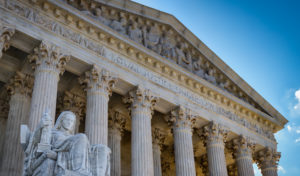The Hidden Governance in AI
Measurement modeling could further the government’s understanding of AI policymaking tools.
Procurement as an AI Governance Change Agent
Soft law standards can promote responsible procurement of artificial intelligence systems.
Procurement Officials Are Leading Federal AI Adoption
Contracting officials and agency leaders are key to the deployment of ethical AI processes.
Responsible AI is a Management Problem, Not a Purchase
Developing ongoing programs to monitor AI and sustain good outcomes is essential to ensure AI accountability.
How Can Governments Use AI to Improve Procurement?
By using artificial intelligence, agencies can improve their procurement processes.
Using AI to Reduce Performance Risk in U.S. Procurement
Advances in digital technology can help in managing the goals of federal acquisition.
Retooling the Acquisition Gateway for Responsible AI
For government to make the most of artificial intelligence, it needs changes throughout the procurement life cycle.
The Procurement Path to AI Governance
Procurement standards could promote responsible use of artificial intelligence by government.
Drilling Approvals are Not the Reason for High Oil Prices
Despite criticism, the Biden Administration’s drilling approvals have had little impact on current prices.
Did Step Zero Help Doom Chevron?
One of the Supreme Court’s most significant administrative law precedents may soon be overturned.
Increasing Access to Credit in Communities of Color
Updating the Community Reinvestment Act to promote special purpose credit programs could improve equity in credit and lending.
Cataloging and Clarifying Judicial Review Statutes
Congress should seek to remove procedural obstacles that inhibit statutory access to judicial review.












